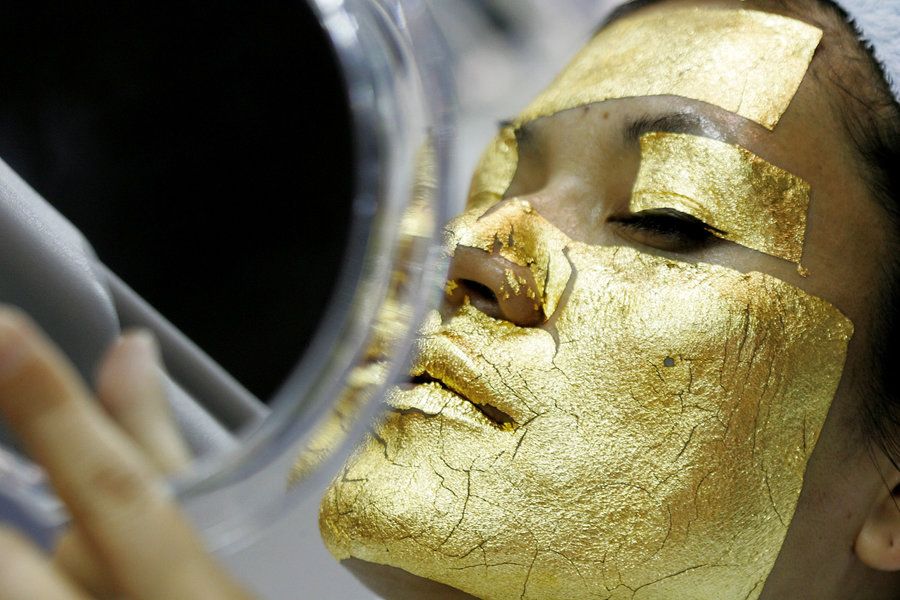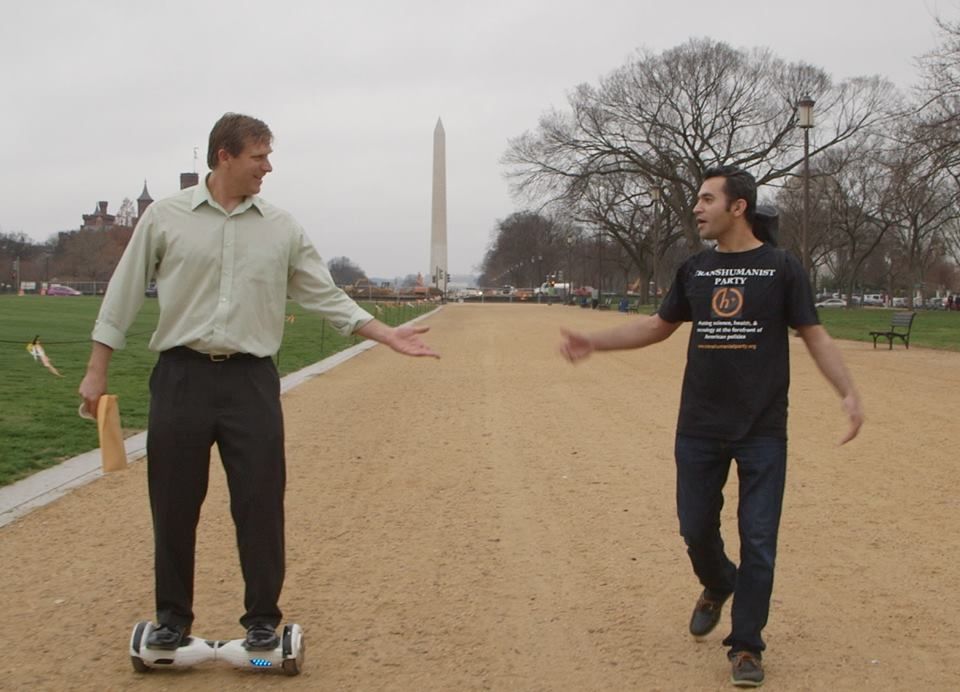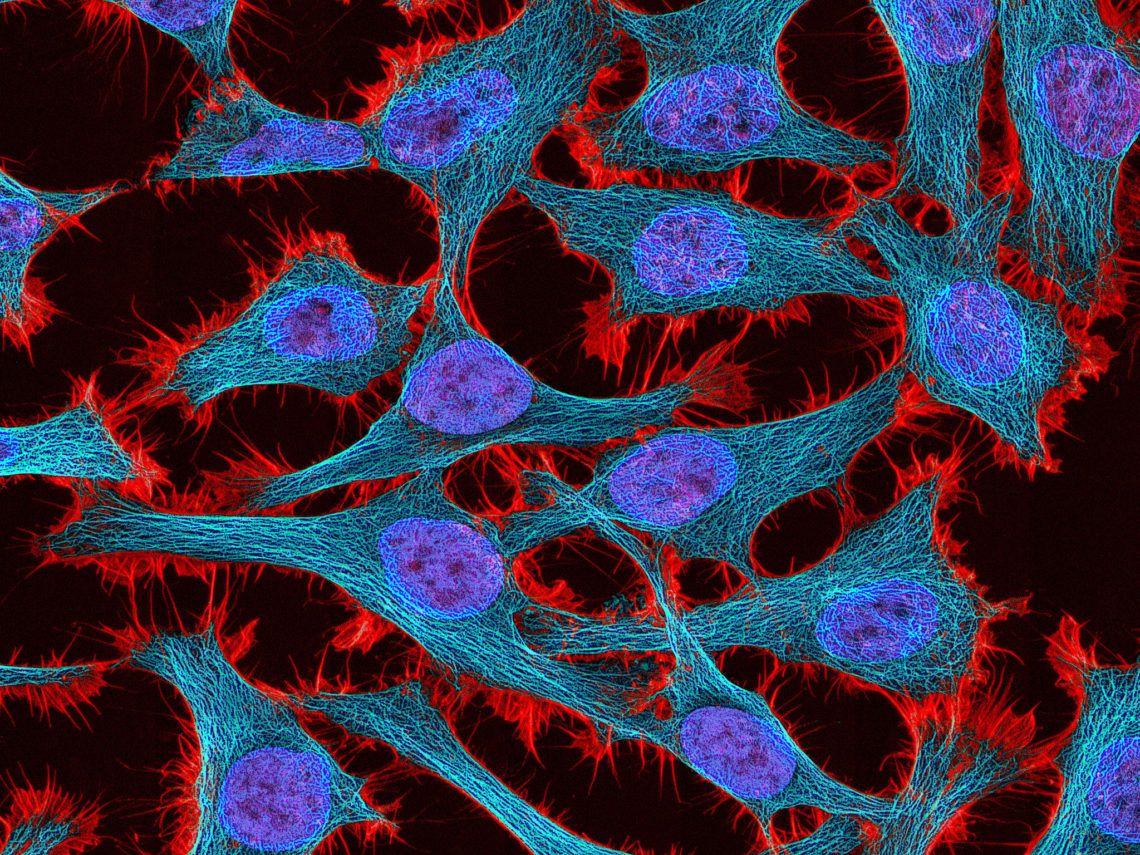This particular type of gene therapy gave mice younger bodies and 30% longer lifespans.



I’m aware of a number of the world’s most important publications soon to be covering it. As a result, I encourage all of you that are in leadership and public positions to temper your political perspectives and posts in social media (whatever side they fall on), and instead to focus on pushing life extension and transhumanist themes forward. We should strive to show that we are united by our aims and love of radical science and technology, and not divided by politics. If pursued correctly, #transhumanism can grow into a multi-billion person movement that will ensure global prosperity, protect liberties, and eliminate biological death and most suffering of humanity. Thanks for considering this! And please let others know. #future

Science isn’t the easiest thing to understand especially biology, but are we getting the message right about rejuvenation biotechnology? Reason at Fight aging delves into the issues and offers commentary about our recent blog article at LEAF.
For those of us who immediately understand, at first recognition, that the opportunity to live a longer life in good health would be a fantastic thing, and in fact so wondrous that we should jump up and do something to make it happen, it is a continual puzzle that we find ourselves in a minority. How is it that we live in a world in which the majority simply doesn’t care, or if prompted on the topic, declares their desire to age, suffer, and die on the present schedule? After a few years of this, one might be forgiven for thinking that we are just not very good at advocacy. But given a second consideration, we might ask why we should have to be good at advocacy at all in this situation. Isn’t more good health and vigor, and an absence of horrible, debilitating age-related disease, an obvious and unalloyed good? Isn’t the whole point of medicine to defeat disease and prolong health? Isn’t it the case that all of these people in favor of aging and age-related death nonetheless go out and visit the doctor when they get ill, while supporting research into treatments for cancer and other age-related diseases? I don’t think that we are the irrational ones in this picture.
After going on fifteen years of writing on this topic, I don’t have much more of an idea than I did when I started as to why greater human longevity isn’t an obvious and highly important goal for everyone. The same questions and theories back then are still here today, and there is still little data to pin down their accuracy: fear of frailty, of overpopulation, of any change, even positive, and so forth. Since it was an immediate and evident revelation for me, rather than a gradual conversion, perhaps I am not the right person to achieve that understanding. I am, however, pleased to see that despite the challenges our community of iconoclasts, heretics, revolutionaries, and rational thinkers on the subject of longevity science is greatly expanded these days. More of these folk than ever are writing and persuading, both inside and outside the scientific community. We have progressed and grown as a community, alongside progress in the state of the science.
For today, I see that the Life Extension Advocacy Foundation has set up a blog in order to help bring spread our message to new audiences. As noted by the author here, the best evidence so far suggests that the fear of being old and decrepit for longer as a result of life extension therapies is the most important factor in public opposition to greater longevity, despite the fact that scientists and advocates have repeatedly disclaimed this as a goal, and that many have noted that such an outcome is implausible to achieve even if someone was trying. On the one hand that suggests that it is simple ignorance that might be dispelled, but on the other it seems very resistant to the efforts already made, over and again, by near every public figure involved in the aging research community.
Answers to rejuvenation objections #1: The Tithonus Error.
We certainly agree on this one! Living longer when your body keeps falling apart would suck big time, but that is not what rejuvenation is about. In fact, it is about preventing that from happening, in the short and long runs alike.
I probably have made the above concept clear enough on the website as a whole, but then again dealing with it separately in the objections section may be a good idea. In case anyone hasn’t read the explanations on ageing and rejuvenation first and jumps directly to the answers to objections, they might not get the full picture and think we’re just trying to make people live longer without curing them of the ill health of old age.
The concern of more life in a sicker body is well illustrated by the greek myth of Tithonus. In short, Tithonus was a mortal who was in love with Eos, the titan of the dawn. She fancied him back, but they had a problem: As a deity, she was immortal, but Tithonus was not. One day he’d give up the ghost and their idilly would be broken. Thus, Eos pleaded with Zeus to make Tithonus immortal as well. Problem solved, right? Yeah, not really.

Turning cancer cells into zombie cells then destroying them with senolytic therapy for a double whammy against cancer!
Using a combination of therapies to turn cancer cells into non-dividing zombie cells then destroying them with could soon become the way we treat cancer without the need for harsh chemotherapy.
#aging #cancer

Aging fosters sickness and disability, increases human suffering, and makes us more likely to die. Previously, I argued that curing aging must be a top priority for society, yet there are also a number of possible objections to this endeavor. Most of these are unfounded myths that can be disproved while others raise relevant social, philosophical and ethical issues. This essay draws on my own lectures, and publications (Sethe and de Magalhaes, 2013), on this subject and attempts to answer the most commonly raised questions and concerns about the work of gerontologists and a possible cure for aging.

This is, in my opinion, the real point of rebutting objections to rejuvenation.
If you’ve hung around here long enough, you probably know I have two pet peeves: ageing and money. If we assume the saying ‘Only two things are certain in life: death and taxes’ is true, then we’re forced to conclude that I advocate for the (indirect) elimination of the only two certainties in life. So, if you came here looking for certainties, I’m afraid you’re in the wrong place.
I’m (mostly) not joking. Lately I’ve been working a lot on the Answers to objections section, which together with a few discussions I’ve had on the Internet, got me thinking about the point of rebutting objections to rejuvenation. Generally, when I discuss the subject with somebody who’s not at all sold on the idea of rejuvenating people, I get the feeling they expect me to prove beyond doubt that nothing can possibly go wrong, either along the way between here and an ageless world or once that world has been reached. If my feeling is correct, opposers to rejuvenation may expect that my rebuttals are meant to prove that neither a post-ageing world, nor the journey to it, will present any problems or challenges.
This expectation is utterly unrealistic. It’s actually worse than that—it’s completely wrong. There’s no way in hell I (or anyone else) could guarantee that we won’t have a dictator ruling a nation for six centuries, or that environmental problems won’t be exacerbated, etc. The reason I can’t promise none of the above will happen is the very same reason why rejuvenation opposers can’t promise any of the above will happen: Nobody can actually predict the future.

Why is it so hard to convince people living longer is a good thing? This short article has some evidence worth considering.
Most advocates of life extension report facing resistance to the idea of increased lifespans by medical means when trying to disseminate this idea among general public. Resistance manifests itself in many forms, ranging from concerns such as overpopulation to concerns about unequal access to life extending treatments. But the most unexpected thing is probably that people often don’t want an increased lifespan at all. Surveys in different countries show, that when people are asked “how long would you like to live?”, they often give a number equal to or slightly higher than the current life expectancy in a given country[1–4].
But wait… Isn’t extending life for more decades a good thing that everyone should strive for? In reality we often do not see enough enthusiasm for the idea in general. So why is this?

Microbial burden is a real problem in aging and researchers are finding ways to boost our immune system to resist these microscopic enemies.
Microbial burden is a significant contribution to aging and our bodies are under daily attack from these microscopic invaders. The more completely we can remove these invaders the less impact they will have on the aging process.
“Researchers at the University of Illinois at Urbana-Champaign and Newcastle University in the U.K. are investigating how infectious microbes can survive attacks by the body’s immune system. By better understanding the bacteria’s defenses, new strategies can be developed to cure infections that are currently resistant to treatments, the researchers said”

“His body, along with the others, will remain frozen indefinitely, with enough ongoing financial support to sustain its current state, news.com.au reported.
Last year, a Massachusetts Institute of Technology graduate successfully froze and reanimated a rabbit brain”.
Since his death, James Bedford’s body has been cryogenically frozen and awaiting reanimation on the edge of the Sonaran Desert in Arizona. This week marks the 50th year of Bedford’s deep freeze, making him the oldest “de-animated” human being on earth.
Bedford’s body is stored in the Alcor Life Extensions Foundation in Scottsdale, where it’s kept alongside 146 other frozen bodies, news.com.au reported.
Along with the Cryonics Institute in Michigan and KrioRus in Russia, Alcor is one of three cryogenic facilities worldwide.